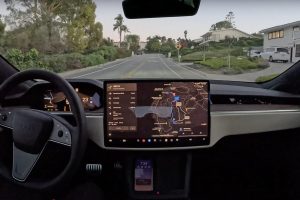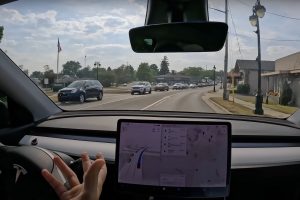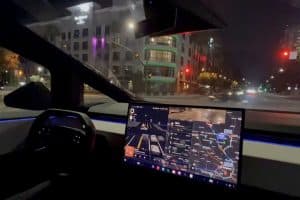- 💡 Elon Musk clarifies that Full Self-Driving (FSD) was not enabled in the Tesla Model 3 involved in a fatal crash in May 2022.
- 🚗 The driver of the Tesla, Hans von Ohain, was a Tesla employee and had a blood alcohol level of 0.26, over three times the legal limit.
- 🗣 Erik Rossiter, a passenger in the vehicle, claimed the driver was using an “auto drive feature on the Tesla” at the time of the crash.
- 📰 Headlines suggesting the Tesla was running FSD at the time of the crash have circulated, despite the NHTSA’s inability to confirm if FSD or Autopilot was engaged.
- 📱 Elon Musk refuted claims on social media platform X (formerly known as Twitter), stating that FSD had never been downloaded on the Model 3 involved in the crash.
- 📝 Colorado State Patrol concluded their investigation in February 2023, attributing the incident to drunk driving, emphasizing the importance of responsible driving behavior.
In the realm of electric vehicles and autonomous driving technology, Tesla often finds itself under the spotlight. Recent events surrounding a fatal crash involving a Tesla Model 3 have sparked controversy and raised questions about the role of autonomous features in such incidents. Let’s delve into the details and debunk some of the myths surrounding this tragic event.
The Incident: Unraveling the Details
In May 2022, a Tesla Model 3 was involved in a fatal crash, resulting in the tragic loss of life. The driver of the vehicle, Hans von Ohain, was a Tesla employee, and his blood alcohol level at the time of the crash was found to be over three times the legal limit. This crucial detail underscores the primary cause of the accident: drunk driving.
Claims and Counterclaims: Sorting Through the Confusion
Following the crash, a passenger in the vehicle, Erik Rossiter, claimed that the driver was using an “auto drive feature on the Tesla” at the time of the incident. This assertion fueled speculation and led to headlines suggesting that Tesla’s Full Self-Driving (FSD) technology was involved. However, Elon Musk, CEO of Tesla, refuted these claims on social media, stating that FSD had never been downloaded on the Model 3 in question.
Navigating the Narrative: Fact vs. Fiction
Amidst the conflicting narratives, it’s essential to distinguish between fact and fiction. While headlines may sensationalize the involvement of autonomous features, the reality is that the primary factor behind the crash was human error—specifically, driving under the influence of alcohol. The National Highway Traffic Safety Administration’s (NHTSA) inability to confirm whether FSD or Autopilot was engaged further underscores the need for factual accuracy.
Lessons Learned: Prioritizing Responsible Driving Behavior
As the dust settles on this tragic incident, it serves as a sobering reminder of the importance of responsible driving behavior. Regardless of technological advancements, the human element remains paramount in ensuring road safety. Colorado State Patrol’s conclusion attributing the crash to drunk driving highlights the need for greater awareness and accountability among drivers.
Moving Forward: Toward Safer Roads and Responsible Innovation
In the pursuit of safer roads and the advancement of autonomous technology, collaboration and transparency are key. While Tesla continues to innovate in the realm of self-driving capabilities, it must prioritize safety and ethical considerations. Moreover, regulators, industry stakeholders, and the public must engage in constructive dialogue to navigate the complexities of autonomous driving responsibly.
Conclusion: Striving for Clarity in a Complex Landscape
As discussions surrounding Tesla’s involvement in the fatal DUI crash persist, it’s crucial to approach the topic with nuance and clarity. While technological advancements hold promise for the future of transportation, they must be accompanied by a commitment to safety and accountability. By learning from past incidents and fostering a culture of responsible innovation, we can pave the way for a safer and more sustainable mobility ecosystem.





